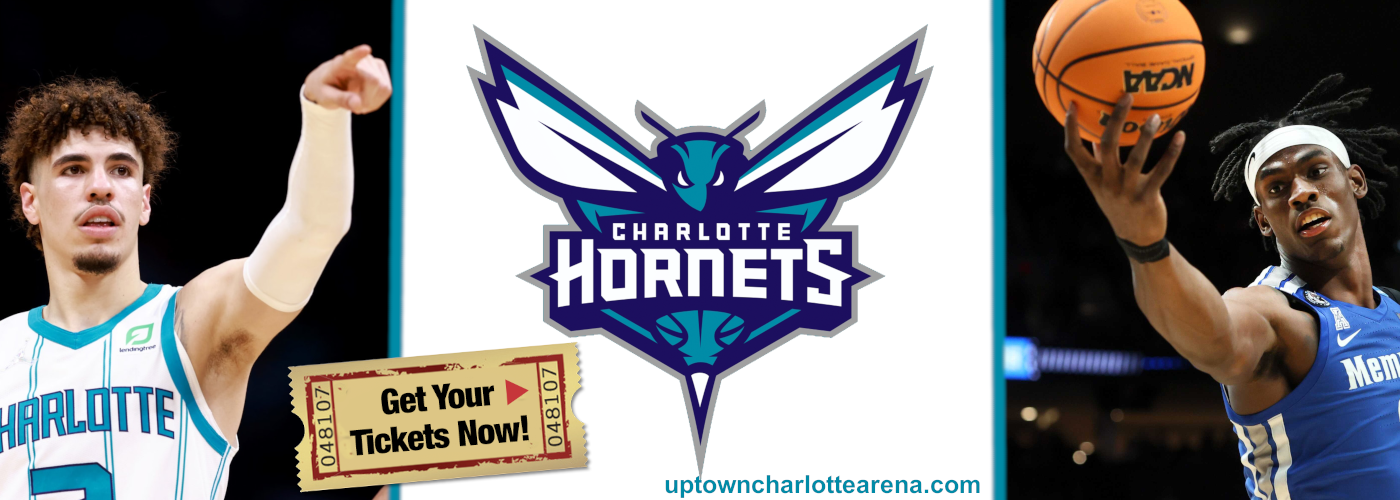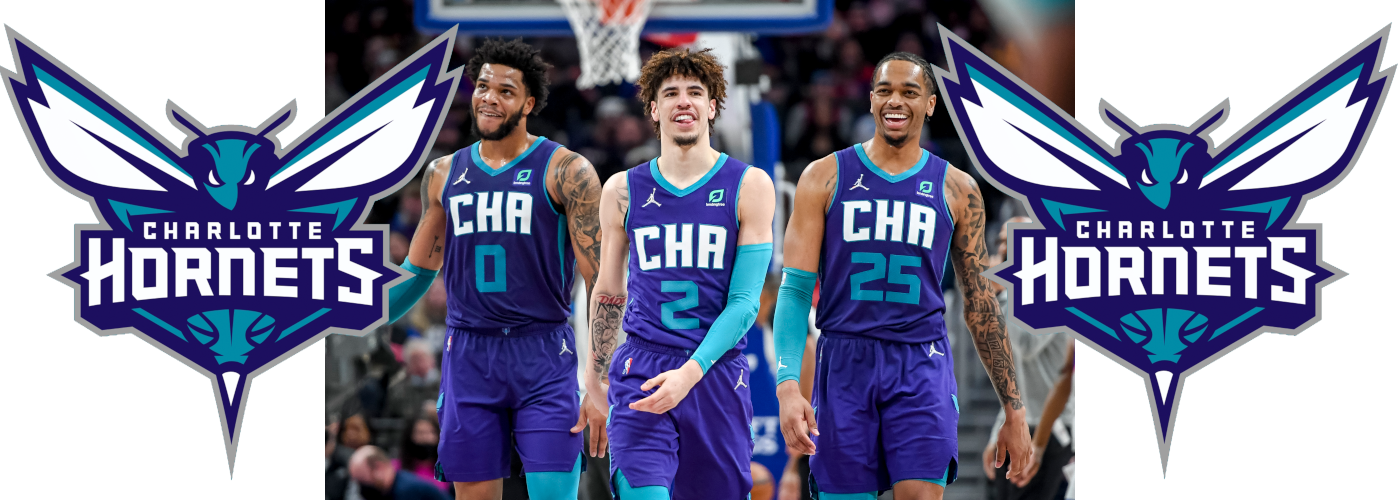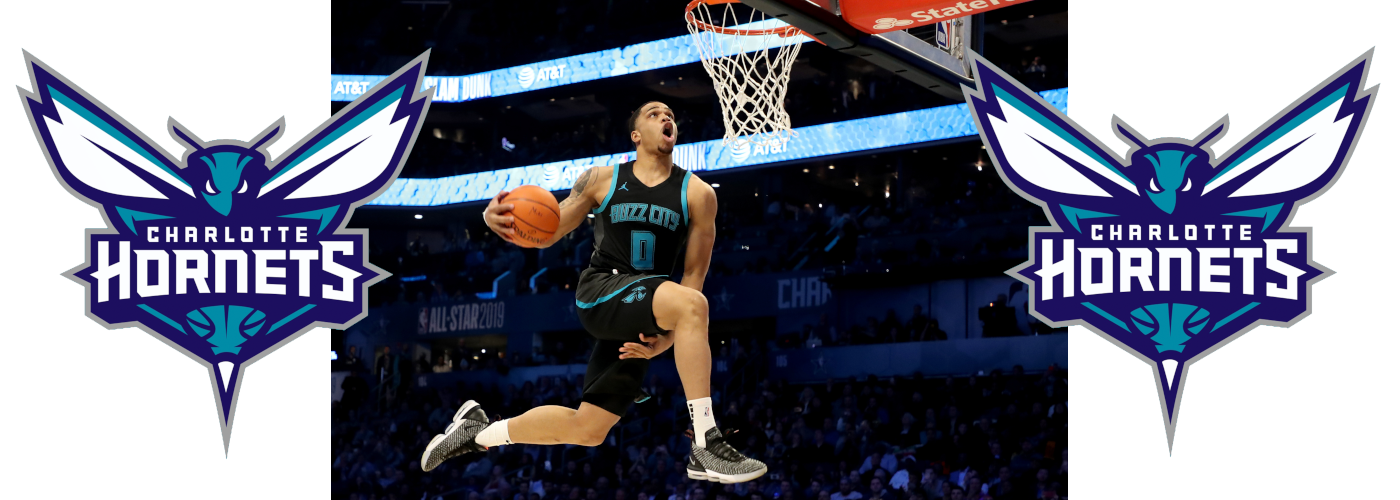
Right now, basketball’s best fans are lining up to get tickets to see The Charlotte Hornets. And is it any wonder since this team plays in the NBA as a member of the Eastern Conference Southeast Division out of Charlotte, North Carolina. Especially when their home games are played at the incredible Spectrum Arena. Let’s not forget that the team is largely owned by mythic Basketball Hall of Famer, Michael Jordan, who acquired controlling interest in the team in 2010.

Team History
And the Hornets are a team with history as they were established back in 1988 as an expansion team owned by George Shinn. This was part of an effort to expand the NBA by four teams including the hornets. Shin wanted to bring the NBA to Charlotte and he assembled a group of local businessmen to head the prospective franchise.
Now what’s interesting is why Charlotte was chosen. Because as it turns out, Charlotte was a hotbed for college basketball and it was one of the fastest-growing cities at the time and was even previously one of the three in-state regional homes of the American Basketball Association’s Carolina Cougars from 1969 to 1974. In short, basketball was in the citie’s blood.
There were initial doubts from critics, but Shinn had a strong card to play with the Charlotte Coliseum, which was a state-of-the-art arena that could seat almost 24,000 spectators. At the time it was the largest basketball specific arena to serve as a full-time home for an NBA team. And this led to Shinn and his group being awarded the franchise that would begin play in 1988. The other franchises were granted to Miami, Minneapolis-Saint Paul, and Orlando.
Originally, the team was to be known as the Charlotte Spirit, but the name “Hornets” was chosen from a name-the-team contest. It originated from British General Cornwallis who had, allegedly, described Charlotte as “A hornet’s nest of rebellion” following the Battle of Charlotte in 1780. And the team further sparked interest when it announced teal as its primary color which set off a sports fashion craze in the late 1980s and early 1990s. And, the initial uniforms were the first in the NBA to feature pin stripes, which became a hit and other teams followed suit.
Shinn later relinquished control of his original franchise and acquired a new one in New Orleans. It’s interesting that there was controversy regarding this move, as Shinn was permitted to relocate his basketball organization to that city, but an agreement was reached where Charlotte would retain the history and records of the original team from 1988 to 2002.
After two seasons of suspended operations, the Charlotte franchise was rebranded as the Charlotte Bobcats and reactivated for the 2004-05 NBA season. Then later, in 2013 the team announced that they would change their name to the Charlotte Hornets.
However, the team has had an upward climb in claiming success, even with the legendary Michael Jordan as majority owner. For example, as of 2022 the Hornets are the oldest team in North American major professional sports to have never won a division championship.

About Spectrum Center
The Spectrum Center is an indoor arena located in Uptown Charlotte, North Carolina. The city of Charlotte owns it and its operated by the NBA’s Charlotte Hornets. The arena has room for 19,077 spectators for NBA games and can be further expanded for up to 20,200 fans during college basketball sized events.
Stadium History
It was originally opened in October 2005 as Charlotte Bobcats Arena, which was the name used for the NBA franchise at the time. The name was later changed to Time Warner Cable Arena in 2008, when Time Warner purchased the naming rights. But then it was changed to Spectrum Center when Time Warner Cable was purchased by Charter Communications.
The arena was originally intended to host the original hornets in 2006. Because the previous arena, The Charlotte Coliseum, was considered outdated despite being only 13 years old.
The arena was opened to the public on October 21, 2005. And it was hoped that the building would bring the city together as its location and large outdoor plaza was intended on being a gathering point. It had an open design, and artwork throughout that spoke to the efforts of community and the goal of socializing. One of its major features was the original center-hung scoreboard, which was not only the largest during its debut, but featured a light-up 360 degree 3D mural of the Charlotte skyline.
The arena’s ownership did face some controversy though, as they had attempted to charge an incredibly high price to host a graduation ceremony at the venue. Though the fee was later waived after media attention and public outcry, schools at the time opted against using the venue for graduation proceedings.
Major Events
Today, the venue is used for the Charlotte Hornets’ home games as well as for a variety of other purposes. And this includes college basketball as the city has always maintained a strong identity as a hotbed of college basketball.
The arena therefore would host many NCAA basketball games including the following events:
- NCAA Tournament: 2008, 2011, 2015, 2018
- The arena hosted the first ever 16–1 upset in the NCAA Tournament since the 64-team field was adopted. The University of Maryland, Baltimore County upset the University of Virginia 74–54 on March 16, 2018.
- ACC Men’s Basketball Tournament: 2008, 2019[15]
- Southern Conference men’s basketball tournament: 2010
- Central Intercollegiate Athletic Association (CIAA) men’s and women’s basketball tournaments: 2006–2020.
- The Charlotte 49ers basketball teams play a number of high-profile games at the arena.[citation needed]
Other events
The venue has also hosted the Democratic National Convention in 2016 as well as the Kellogg’s Tour of Gymnastics Championships. It was announced as a host for the 2019 NBA All-Star Game in 2017. And was to be used for the 2020 Republican National Convention, which was scaled back due to the COVID-19 Pandemic.